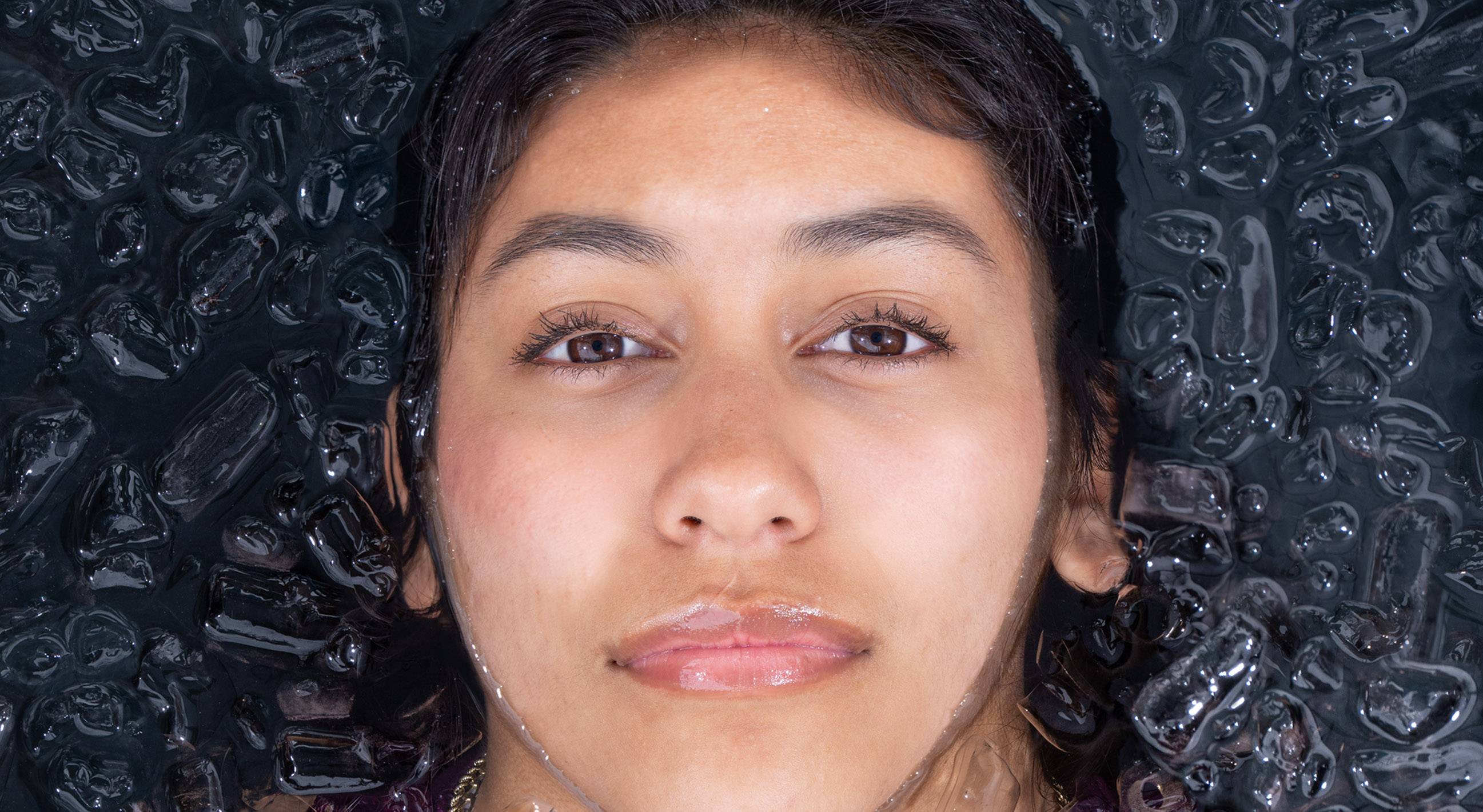Beating the Heat

Abby Parra, a member of the Bobcat track and cross country teams, cools off in an ice bath.

Kevin Miller moved to Texas for the heat. But unlike a snowbird fleeing the frigid north during the winter, Dr. Miller headed south specifically for the blazing hot Texas summers.
“Up until now, I’ve been a heat illness researcher living in cold states,” says Miller, a professor of athletic training and nationally renowned expert on exertional heat illness. “From the perspective of where to make the most difference with your life’s work, here in Texas we have a lot of potential to really help people.”
Miller joined TXST’s Department of Health and Human Performance in 2022 after nine years at Central Michigan University. In addition to teaching courses in research methods and upper extremity injury evaluation, Miller is a prolific scholar on the causes, treatment, and prevention of heat stroke and exercise-associated muscle cramping.
Texas is one of the most dangerous states for heat-related deaths. A record 334 people died from heat in Texas in 2023, according to a Texas Tribune report citing data compiled by the Texas Department of State Health Services.
Considering the public health concern, Miller’s research has broad applications, notes Dr. Ron Williams, chair of the Department of Health and Human Performance. “Dr. Miller’s research is breaking new ground on interventions, protocols, and products that can help prevent adverse heat events or slow the rate of heat illness progression,” Williams says. Miller has published multiple papers covering topics associated with heat stroke, a potentially fatal condition that occurs when the body reaches 105 degrees or higher. Some of Miller’s papers focus on various treatments for overheated people while others cover best practices for youth sports and football uniforms to prevent heat stroke.
Miller also examines the many potential causes of muscle cramping during exercise, such as dehydration and fatigue. Two years ago, he published the “multifactorial theory,” finding that cramps can be caused by a combination of various factors that affect everyone differently.
At TXST, Miller recently opened a $900,000 environmental physiology lab in the Jowers Center. A custom environmental chamber in the lab controls room temperature up to 120 degrees and humidity up to 90%. So far, Miller and his students have used the lab to study the efficacy of various thermometers and a body-cooling system known as the Polar Life Pod, the latter funded by an $80,000 grant from the Polar Company.
For the past several years, Miller has attended the Falmouth Road Race, which takes place each August on the Massachusetts coast. Miller and other medical professionals provide care at the finish line, where every year they save dozens of people from life-threatening heat stroke by placing them in tubs filled with ice water. It’s also an opportunity to conduct research with student assistants.
“We use cold-water immersion to save lives every year,” Miller says. “Water is effective because it cools in multiple different ways, through conduction when the hot body touches the cold water, and through convective cooling when we pour water over people.” ★